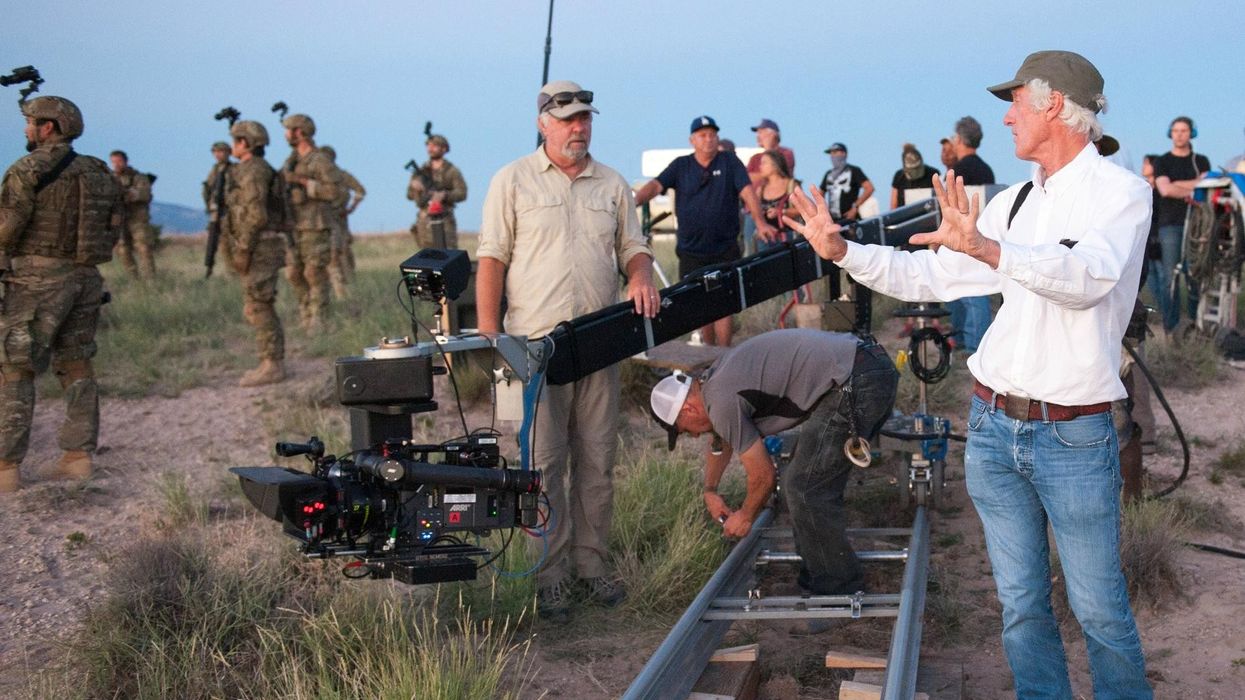Roger Deakins Debates: Are Test Screenings Worth It?
Should you test screen or nah? Roger Deakins and company sound off on his podcast, Team Deakins.

You know when you give a final pass on a paper for school? How you think it's done but you might show a friend to see if it needs any tweaks? Or maybe you show it to a dumb friend who doesn't understand your genius and gets confused at the opening paragraph.
You just never know.
That's sort of how audience test screenings work. You show your work to people without context and see if they get it. Sometimes you get suggestions that help craft things to the perfect spot. And other times you just get frustrating notes that make things worse.
So are test screenings weapons or saviors?
On a recent episode of the Team Deakins podcast, Roger, James, and editor Joe Walker talked about how they've influenced their work over the years.
“Some people hate them and are very frightened of them but I love them,” Walker said. “There’s nothing like sitting in an audience with other people and feeling how the film is going down. You can tell, absolutely, when a film is working and cooking and you can tell when it isn’t and when people are restless.”
Walker added, “The edit is about managing that sync between if you are ahead of the audience or if you are behind. You never want to be behind. Test screenings reveal that. You have to be in a position of trust with your producers, if you are not then [test screenings are] a weapon otherwise.”
That sync can be very hard to achieve. The producer needs to act as a conduit for information, so having them deliver the responses with pointed notes can only make things better. Walker offers the example on Arrival, where the test screenings only made things better.
As the editor explained, “You wanted to get people at the end of the film understanding the [time twist] enough to have them be able to have the feelings we wanted them to have at the end. If you weren’t sure, then you wouldn’t have those feelings. We had very worrying test screenings where people just didn’t get the basic tenet of the film. People being very smart, they invent their own reasons for what’s in front of them and they weren’t what we wanted them to be. So we kept going back to the drawing board of making it clearer in some way.”
But not every screening is as successful as that one.
"They’re bringing in an audience,” James Deakins said. “The one thing I think about test screenings is you bring these people in and you give them the treat about seeing this movie, and then you give them questions and they feel like they should answer. If the question is, ‘What did you not like about the main character?’ They’re going to have to find something because they were just giving this treat and they feel like they owe it. I think that’s a problem. Sometimes you get things that wouldn’t have come up if you didn’t set it up that way.”
One of the things I find very annoying about screenings like this is how general the questioning seems to be. There's no nuance to these answers. You get bogged down serving general notes that may not actually address the problem people had with the note.
Roger Deakins said he's more in line with James than he was with Walker, affirming, “I agree [with James]. You sit there and feel the audience's reaction and that tells you more than any kind of form or question [the test audience] would have to fill in. Because in that case, they can create something that’s not really their reaction to it. They need numbers.”
I've always found that using a pool of people I respect and whose opinions I care about to be better than seeking general notes from someone I don't know...especially when they understand the project and its goals.
What do you all think?
Let us know in the comments.











